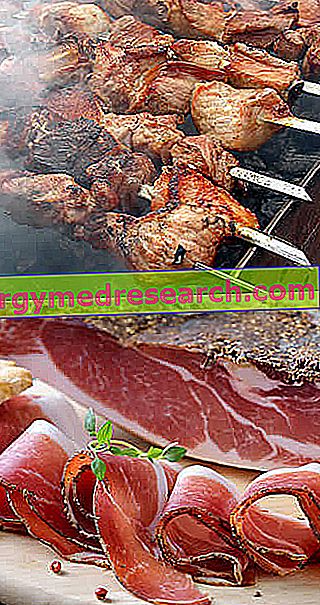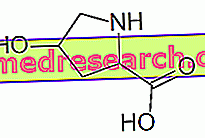Uncontrolled Eating Disorder is an eating disorder that manifests itself with episodes of recurrent and prolonged intake of food, associated with the sensation of losing control of the act of eating, but not followed by elimination maneuvers (induction of vomiting, intake of diuretics or laxatives) or other compensatory behavior (sustained physical activity).
The incidence rate of the disease is not known, because it also includes the category of obese and that of 30-40% of people who go to the doctor for overweight problems. However, it is estimated that 3% of the population suffers from BED. The disorder affects mostly the female sex, with a ratio of 3 to 2 between females and males. The onset of uncontrolled behavior occurs more frequently in late adolescence and after 30 years. From this age onwards, he maintained a constant trend up to the age of 55, and then there was a new rise in the trend in the adult who passed this age and in the elderly.
One of the reasons of interest of this disorder is related to the frequent association with obesity. Weight reduction treatments based on drastic, repeated and protracted dietary restrictions may be considered a concurrent cause of the onset of Uncontrolled Eating Disorder.
Symptoms and diagnosis
This disease is characterized by very specific behaviors, which also allow it to make its diagnosis of certainty:
- Recurrent episodes of uncontrolled feeding
An episode of uncontrolled feeding is characterized by the presence of both the following elements:
- intake over a defined period of time (usually in about 2 hours), of a quantity of food significantly more abundant than what most people would eat in a similar period of time and in similar circumstances;
- feeling of loss of control over food intake during the episode, for example feeling unable to stop eating or being unable to control the amount and type of food being introduced.
- Binge eating episodes are associated with at least 3 (or more) of the following symptoms :
- eat much more quickly than normal;
- eat until you feel unpleasantly full;
- eat large amounts of food even if you don't feel physically hungry;
- eating alone, due to embarrassment about what you are introducing;
- feeling disgusted with yourself, depressed, or very guilty about binge eating.
- there is marked discomfort due to its uncontrolled diet.
- Uncontrolled food behavior occurs, on average, at least 2 days a week over a 6-month period.
- The uncontrolled diet is not associated with the regular use of inappropriate compensatory behaviors (use of purgatives, fasting, excessive exercise) and does not manifest itself exclusively in the course of anorexia nervosa or bulimia nervosa.
The greater frequency of psychological and psychiatric disorders associated with binge eating disorders includes mood disorders (depression, mania, bipolar disorder) in 50% of cases; followed by anxiety and personality disorders (Borderline, Histrionic, Antisocial, Narcissistic).
Patients who suffer from Uncontrolled Eating Disorder are people who, when they can turn to a specialist, are very worried about weight gain, they live in the affliction of not being able to control the urge to overeat (hyperphagia) and, they are usually motivated to recover their state of health.
Food intake occurs recurrently throughout the day, quickly and with different frequency, especially during the hours when you are staying at home or in work environments where food is present. In general, a regular dietary regime is followed "with meals" or a low calorie diet, but it is in the intervals between meals that uncontrolled food assumptions occur, also because often at these times you are not at the table with other family members. In many patients binges are repeated several times during the day and are continued for a couple of hours or more. The amount of food ingested is usually underestimated; the sense of repleteness hampers the further intake of food, and the absence of eliminatory maneuvers or other compensatory methods determines a continuous and uncontrollable caloric intake, with repercussions on the metabolism and with strengthening of the disturbance: sometimes substantial weight gain ( from 20 to 30 kg in six months), gastrointestinal changes, continuous insulin secretion and hormonal alterations, and the multiple problems associated with obesity.
Keep it going"



